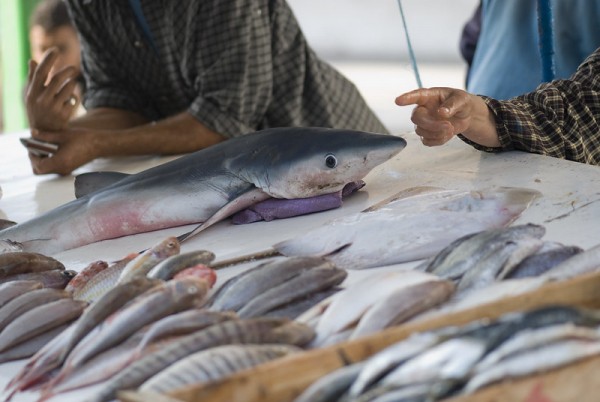Gore and Team Awarded $2 Million Grant to Disrupt Illegal Wildlife Trade
Part of the US National Science Foundation and the Paul G. Allen Family Foundation award of $16M in grants to support science-led conservation projects.
The U.S. National Science Foundation and the Paul G. Allen Family Foundation announced a $2 million grant to Professor Meredith Gore and her team to combat illegal wildlife trade through molecular identification, online market analysis, data integration and operational strategies.
The research project, spearheaded by Worcester Polytechnic Institute alongside University of Maryland and Florida International University, aims to disrupt the illegal wildlife trade of sharks, rays and turtles. The team seeks to advance evidence-based conservation by developing cutting-edge molecular identification technology, mapping the interface of physical and online crime ecosystems, applying novel machine learning frameworks and modeling decision-making under uncertainty.
A range of conservation actions associated with the research include training workshops with law enforcement at U.S. sea and airports to deploy the molecular identification tool, public release of molecular identification profiles, public geodatabase of integrated physical and online illegal wildlife trade crime ecosystems, restorative justice, data-informed interdiction strategies and network interdiction method algorithms.
The broader implication of this research extends beyond just the targeted species, as the final project model is designed to be adaptable to any organism threatened by illegal wildlife trade. The team’s ultimate goal is to not only enhance the efficacy of current conservation strategies but also provide a powerful new tool in the global effort to protect biodiversity.

”I am really appreciative to the Foundations for giving scientists a chance to have a seat at the table,” said Gore. “Science doesn’t make decisions; decision makers make decisions, but science can support decision making.”
This research is one of 10 projects receiving funding under the Partnership to Advance Conservation Science and Practice (PACSP) program, a first-of-its-kind collaboration between the U.S. National Science Foundation and the Paul G. Allen Family Foundation. Now in its second year, the program is designed to catalyze deep collaboration between researchers advancing basic science and conservation partners engaging in on-the-ground conservation.
The projects focus on a range of species—from sharks and grizzly bears to Venus flytraps and Hawaiian honeycreeper—and the outcomes will have far-reaching implications for biodiversity and conservation, policy and the economy.
"The fundamental knowledge these projects create, even though related to specific species, will unlock innovative conservation efforts across a broader range of threatened species and ecosystems," said Lara Littlefield, executive director for programs and partnerships at the Paul G. Allen Family Foundation. "For instance, studying whether mosquitos infected with bacteria can limit the spread of malaria among birds in Hawaii could ultimately limit disease spread among other animals more broadly."
_0.png)
Each project extends basic science into on-the-ground conservation to address critical knowledge and data gaps, enabling greater real-world impact to benefit species and ecosystems.
"The unique partnerships this program creates forge a roadmap to broader conservation action by uniting the skills, expertise and tools needed to address the most urgent threats to our natural world," said Susan Marqusee, NSF assistant director for biological sciences. "These projects also will engage the public, policymakers, law enforcement and others in conservation through education, outreach and other broader impacts."
Main image: Fish market in Morocco. Photo by Lee Martin via Flickr
Published on Mon, 11/11/2024 - 14:16


